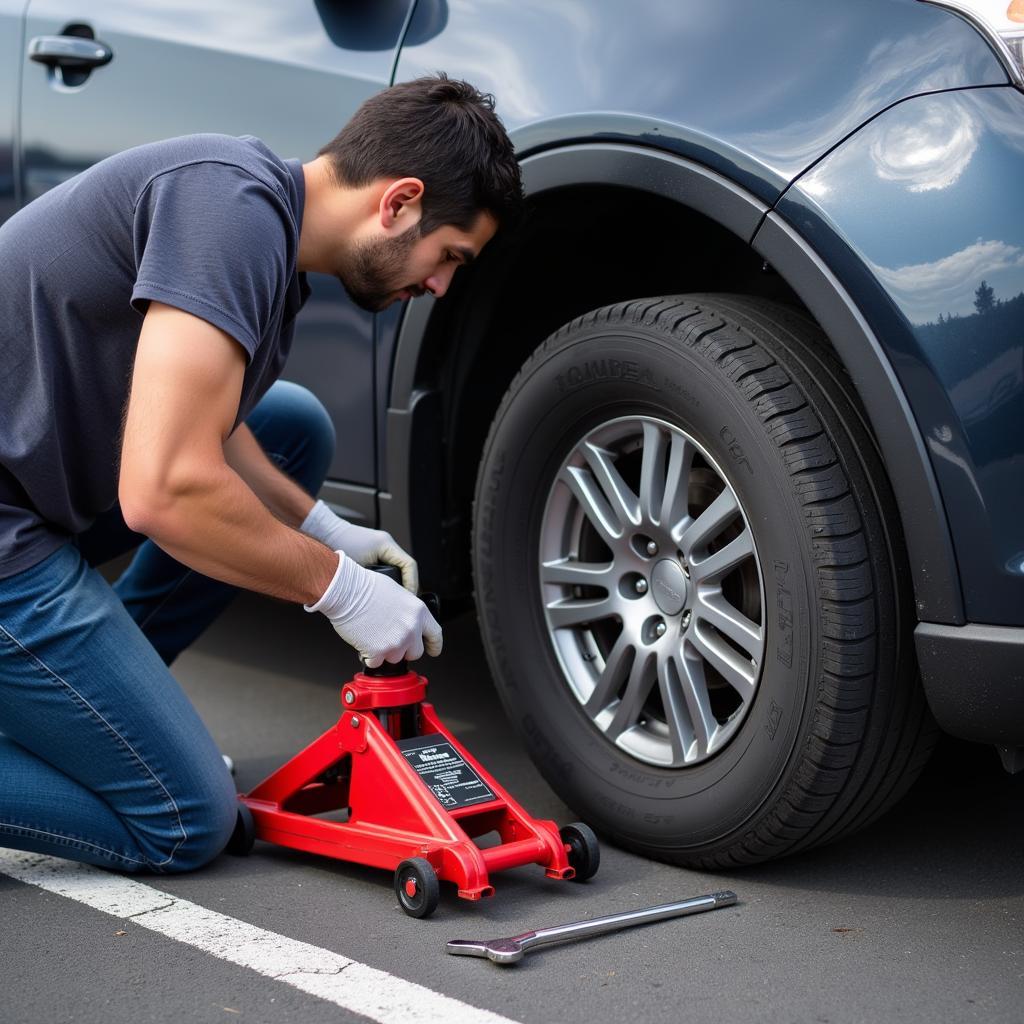Your car engine is the heart of your vehicle, and when it’s not running smoothly, it can be a major inconvenience and a costly repair. Recognizing the signs of engine problems early on can help you avoid more serious issues and potential breakdowns. In this article, we’ll delve into the common symptoms of car engine problems, providing you with a comprehensive guide to identifying and addressing these issues before they escalate.
Understanding the Basics of Car Engine Problems
Car engines are complex systems made up of many interconnected components. When one part fails or malfunctions, it can affect the entire engine’s performance. Common causes of engine problems include:
- Fuel System Issues: Problems with fuel delivery, fuel pressure, or fuel injectors can lead to engine hesitation, rough idling, or even stalling.
- Ignition System Issues: Malfunctioning spark plugs, ignition coils, or distributors can cause misfires, lack of power, or difficulty starting.
- Cooling System Issues: Overheating can be a sign of problems with the radiator, thermostat, or water pump, leading to engine damage if left unchecked.
- Compression Issues: Worn piston rings, valve problems, or head gasket failures can result in low compression, reduced power, and excessive smoke.
- Air Intake System Issues: Clogged air filters, faulty mass airflow sensors, or leaks in the intake manifold can affect air-fuel mixture, leading to rough running or decreased performance.
- Engine Management System Issues: Issues with the computer, sensors, or wiring can cause a range of engine problems, including misfires, poor fuel economy, and emission issues.
Common Symptoms of Car Engine Problems
Here are some of the most common symptoms that indicate a potential problem with your car engine:
1. Engine Hesitation or Stalling:
Do you experience a lag or delay when you accelerate? Or does your car sputter or suddenly stall while driving? These are signs of a problem with the fuel system, ignition system, or air intake system.
What to Check:
- Fuel Filter: A clogged fuel filter can restrict fuel flow, leading to hesitation or stalling.
- Fuel Pump: A faulty fuel pump may not be delivering enough fuel pressure.
- Fuel Injectors: Clogged or malfunctioning injectors can cause uneven fuel distribution.
- Spark Plugs: Worn or fouled spark plugs can cause misfires, leading to hesitation.
- Ignition Coils: Faulty ignition coils can prevent sparks from reaching the spark plugs, causing misfires.
“It’s important to identify the cause of hesitation or stalling as quickly as possible,” advises [Expert Name], a certified automotive technician. “These symptoms can indicate a serious engine issue that needs immediate attention.”
2. Rough Idling:
Does your car’s engine shake or vibrate when it’s idling? This can be a sign of a problem with the ignition system, fuel system, or vacuum leaks.
What to Check:
- Spark Plugs: Worn or fouled spark plugs can cause uneven combustion, resulting in rough idling.
- Vacuum Leaks: Leaks in the intake manifold or hoses can create a lean air-fuel mixture, causing the engine to idle roughly.
- Throttle Body: A dirty throttle body can restrict airflow, leading to rough idling.
“A rough idle is often an early warning sign of a larger engine issue,” says [Expert Name], a veteran mechanic. “It’s best to address it promptly to prevent further damage.”**
3. Loss of Power:
Do you feel a sudden drop in engine power while driving? This can indicate a problem with the fuel system, ignition system, or air intake system.
What to Check:
- Fuel Filter: A clogged fuel filter can restrict fuel flow, leading to a loss of power.
- Fuel Pump: A failing fuel pump may not be delivering enough fuel pressure.
- Spark Plugs: Worn or fouled spark plugs can cause misfires, resulting in a loss of power.
- Air Filter: A clogged air filter restricts airflow, reducing engine power.
“A loss of power can be a serious symptom,” warns [Expert Name], a seasoned car enthusiast. “It’s crucial to get your car inspected as soon as possible to prevent further complications.”**
4. Excessive Smoke:
Are you seeing smoke coming from your car’s exhaust pipe? The color of the smoke can provide clues about the underlying problem:
- Blue Smoke: Often indicates worn piston rings or valve stem seals, allowing oil to burn in the combustion chamber.
- White Smoke: Typically points to a coolant leak into the combustion chamber, possibly due to a blown head gasket.
- Black Smoke: Usually suggests a rich air-fuel mixture, potentially caused by faulty injectors or a clogged air filter.
What to Check:
- Engine Oil Level: If the oil level is low, it could indicate a problem with piston rings or valve stem seals.
- Coolant Level: A low coolant level could signal a coolant leak into the combustion chamber.
- Fuel Injectors: Faulty injectors can cause excessive fuel to enter the combustion chamber, leading to black smoke.
5. Overheating:
Is your engine temperature gauge rising above the normal operating range? Overheating can lead to serious engine damage if not addressed promptly.
What to Check:
- Coolant Level: Low coolant levels can cause overheating.
- Radiator: A clogged radiator can prevent efficient cooling.
- Thermostat: A faulty thermostat may not be opening properly, preventing coolant from circulating through the engine.
- Water Pump: A broken water pump can prevent coolant from circulating.
6. Unusual Noises:
Listen closely for any unusual noises coming from your engine, such as:
- Knocking or Tapping: Could indicate a problem with the connecting rods, bearings, or piston rings.
- Squealing: May be a sign of a failing belt or a worn water pump.
- Whistling: Can indicate a vacuum leak or a problem with the turbocharger.
What to Check:
- Engine Components: Inspect for worn or damaged parts, such as belts, hoses, and bearings.
- Fluid Levels: Check the levels of engine oil, coolant, and power steering fluid.
“Any unusual noises coming from your engine should never be ignored,” emphasizes [Expert Name], a professional mechanic. “They could be early warning signs of a more serious issue.”**
7. Check Engine Light:
A lit-up check engine light is a universal warning sign that something is wrong with your car’s engine. While it doesn’t necessarily mean a catastrophic problem, it’s essential to get the issue diagnosed and addressed promptly.
What to Do:
- Use an OBD-II Scanner: A code reader can retrieve diagnostic trouble codes (DTCs) that can help pinpoint the problem.
- Visit a Mechanic: A qualified technician can diagnose the issue and recommend the necessary repairs.
Taking Action:
If you experience any of the symptoms described above, it’s important to take action to prevent further damage to your engine. Here are some steps you can take:
- Check the Owner’s Manual: Your car’s owner’s manual provides information about common engine problems and recommended maintenance procedures.
- Inspect the Engine: Visually inspect the engine compartment for any obvious signs of damage or leaks.
- Check Fluid Levels: Ensure that all fluid levels, including engine oil, coolant, and power steering fluid, are within the recommended range.
- Use a Code Reader: If your car has a check engine light, use an OBD-II scanner to retrieve diagnostic trouble codes.
- Contact a Mechanic: Consult with a qualified automotive technician for a professional diagnosis and repair.
Preventing Engine Problems:
The best way to avoid major engine problems is to follow a regular maintenance schedule:
- Oil Changes: Change your engine oil and filter regularly according to the manufacturer’s recommendations.
- Coolant Flush: Flush and replace your engine coolant every few years.
- Air Filter Replacement: Replace your air filter regularly to ensure proper airflow to the engine.
- Spark Plug Replacement: Replace your spark plugs according to the manufacturer’s recommendations.
Conclusion:
Recognizing the common symptoms of car engine problems is crucial for early detection and prevention of costly repairs. By staying vigilant and addressing these issues promptly, you can help ensure your car’s engine runs smoothly and reliably for years to come.
If you’re experiencing engine problems or have questions about car maintenance, don’t hesitate to contact AutoTipPro. We have a team of experienced automotive technicians ready to assist you with your automotive needs.
Contact Information:
Phone: +1 (641) 206-8880
Office: 500 N St Mary’s St, San Antonio, TX 78205, United States
car problem free lawsuit, new car purchasing problems
FAQ:
Q: What are the most common causes of car engine problems?
A: Common causes include fuel system issues, ignition system problems, cooling system failures, compression issues, air intake system problems, and engine management system issues.
Q: How can I tell if my car’s engine is overheating?
A: You’ll likely see the engine temperature gauge rising above the normal operating range. You may also notice steam coming from under the hood.
Q: What should I do if my check engine light comes on?
A: Use an OBD-II scanner to retrieve diagnostic trouble codes. If you can’t diagnose the problem yourself, consult with a mechanic.
Q: How often should I change my engine oil?
A: Follow the manufacturer’s recommendations for oil changes, which vary depending on the make and model of your car.
Q: What are some signs of a bad head gasket?
A: Signs of a bad head gasket include white smoke coming from the exhaust, coolant loss, and engine overheating.






Leave a Reply